A therapy dog named Theo loves meeting new friends. The friendly Golden Retriever has cheered hospital patients and residents at assisted living facilities, helped schoolchildren in reading programs, and offered stress relief to college students studying for final exams.
Now that children as young as 5 years old can receive the Covid-19 vaccine, he and other therapy dogs are visiting child vaccination clinics.
“Theo is pretty versatile,” his handler, Beth Kuoni, president of North Carolina Pet Partners, told The Dog People. “He is very, very tuned in to people.”
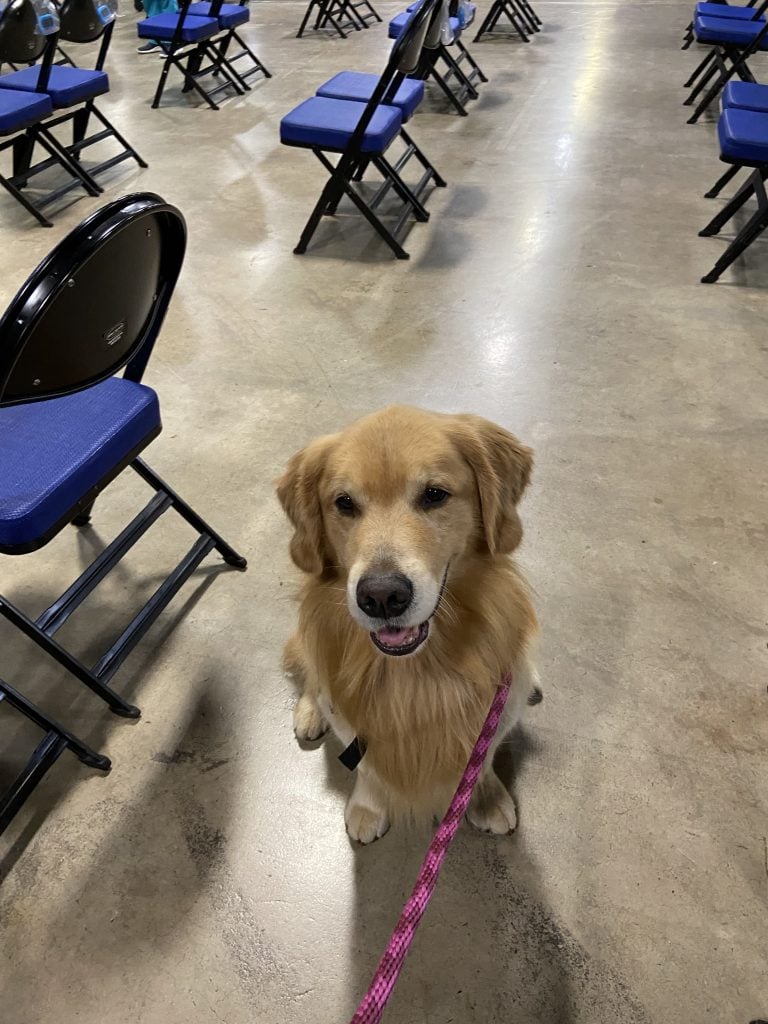
Theo, a 5-year-old Golden Retriever, is a registered therapy dog with the nonprofit therapy animal organization Pet Partners. He’s volunteered since he was just 1 year old. Photo courtesy of North Carolina Pet Partners
Helping When It Hurts
Theo and Kuoni’s most recent visit was in early December at a pediatric vaccination clinic at Greensboro Coliseum Complex. Theo and three other therapy dogs met hundreds of children (and their parents) in a large room. Sometimes they’d circulate through the crowd, handing out free crayons and pictures of the dogs to color.
“There was one little girl that we visited with, and she was trying to be brave. She was really cute and being very sweet. She was there with her dad. We gave her one of Theo’s pictures and some crayons, and then I moved on with other kids,” she recalled. “Before they left, they came over and sought us out—she wanted to show Theo the picture that she had colored. It was just a real sweet exchange, and it really made a difference for her.”
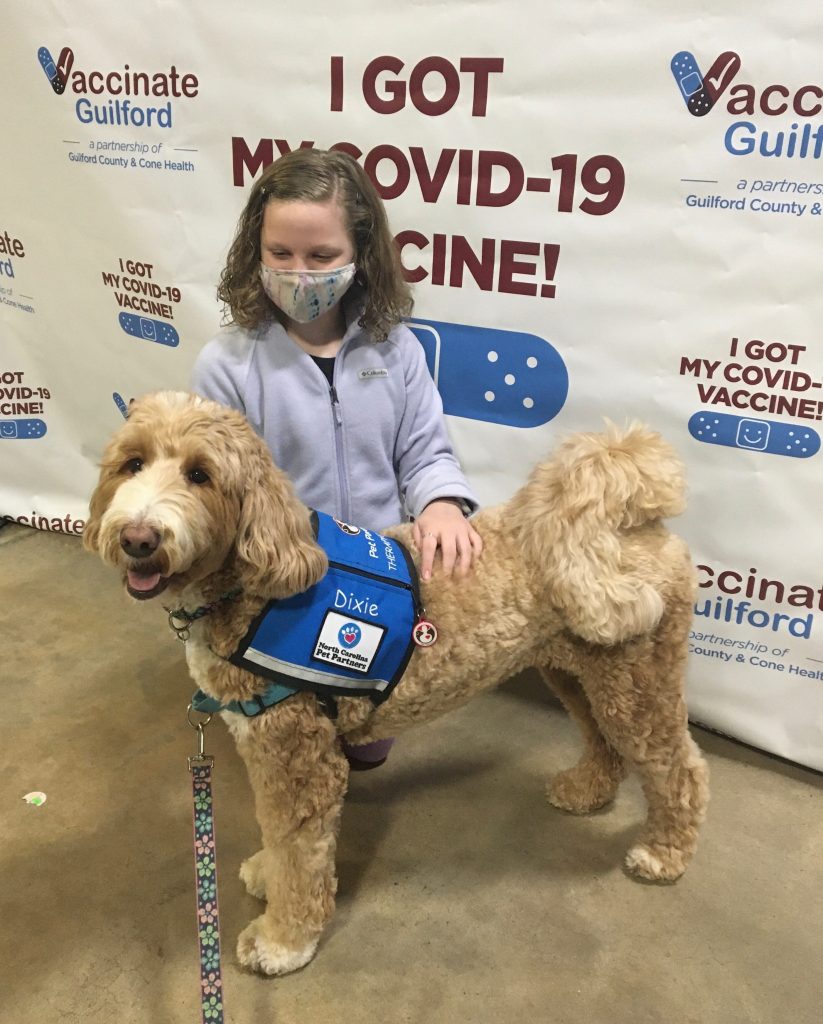
Therapy dogs from the nonprofit Pet Partners are visiting pediatric Covid-19 vaccination clinics in North Carolina, Montana and Texas. Photo courtesy of North Carolina Pet Partners
A Cute and Cuddly Distraction
Theo also helped nurses and parents with children who are afraid of needles, sometimes crying as kids often do when it’s time for a shot. But the arrival of a therapy dog provided a fun distraction so they could get the vaccine.
One little girl was having a really hard time. After Theo met her, the nurses pulled a privacy curtain while the Golden Retriever waited for her on the other side.
“When she came out, she was all talkative, the way kids are after they go through something—when it’s over, they want to talk about it, you know? And she said, ‘He really helped me through this,’” Kuoni shared. “Theo was so good with the kids. It really mattered to the kids to have the dogs there.”
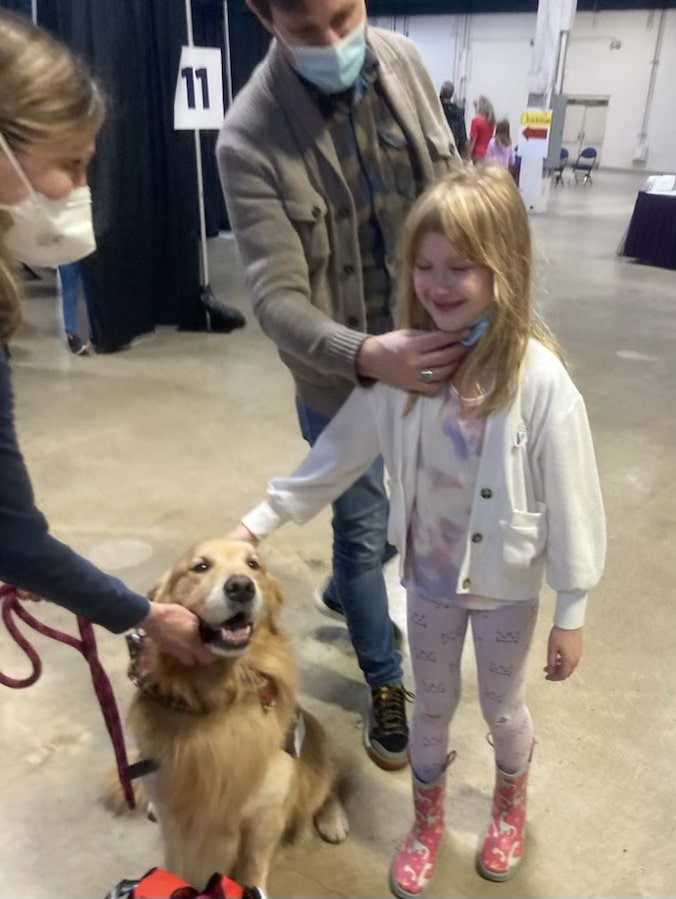
Theo enjoys spending his 2-hour shifts getting lots of pets and hugs from kids like Anna at pediatric Covid-19 vaccination clinics. Photo courtesy of North Carolina Pet Partners
The Benefits of the Human-Animal Bond
Studies show that therapy dogs and animal-assisted therapy (AAT) can benefit children in many ways, according to Steven Feldman, president of the nonprofit Human Animal Bond Research Institute in Washington, D.C.
“Some of the top research results on the benefits of children interacting with therapy animals involve children with Autism Spectrum Disorder (ASD). Studies show that AAT can improve social interaction, reduce stress and problem behaviors in children with ASD,” he told The Dog People. “Research also shows that the presence of a therapy dog can relax children in stressful situations, including adolescents on college campuses. Therapy dogs can also serve as a powerful motivator for children in educational settings and encourage socialization with classmates.”
Theo is one of thousands of therapy dogs offering comfort, joy, and stress-relief to children and adults in a variety of settings. In fact, the nonprofit Pet Partners has around 10,000 therapy animal teams volunteering across America—primarily dogs—according to Elisabeth Van Every, senior communications specialist at the organization.
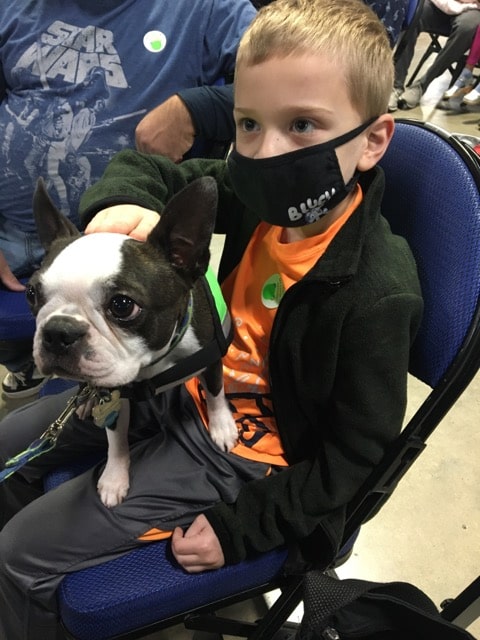
Birdie spreads the love at a Covid-19 vaccination clinic in Greensboro, North Carolina. Photo by Melissa Gregory
“The goal of any therapy animal visit is to support the health and wellbeing of the people being visited through the human-animal bond,” she told The Dog People. “The human-animal bond is essentially the way that we connect with animals. Animals are not judgmental. They are just there to give and receive affection.”
Having that interaction with an affectionate animal can be particularly helpful if someone is dealing with stress or emotional trauma, she noted.
“We know that people have seen reduced blood pressure after interacting with therapy animals. They’ve seen improved motivation for treatment for cancer and heart patients and pediatric patients,” she said.
Puppy-Powered Stress Relief
During the pandemic, therapy animal teams have found creative ways to offer stress relief even when in-person visits weren’t possible, such as “window visits” with seniors at assisted-living facilities, and virtual video visits.
Many therapy dog teams support healthcare workers and first responders with stress relief by waiting outside during a hospital’s shift change.
“That way, people who are ending their shifts for the day get the opportunity to relieve some of their stress from their shifts by interacting with the therapy animals, while people who are getting ready to go into their shifts get some of that love and reinforcement that what they do is important and people care about their work,” Van Every said.
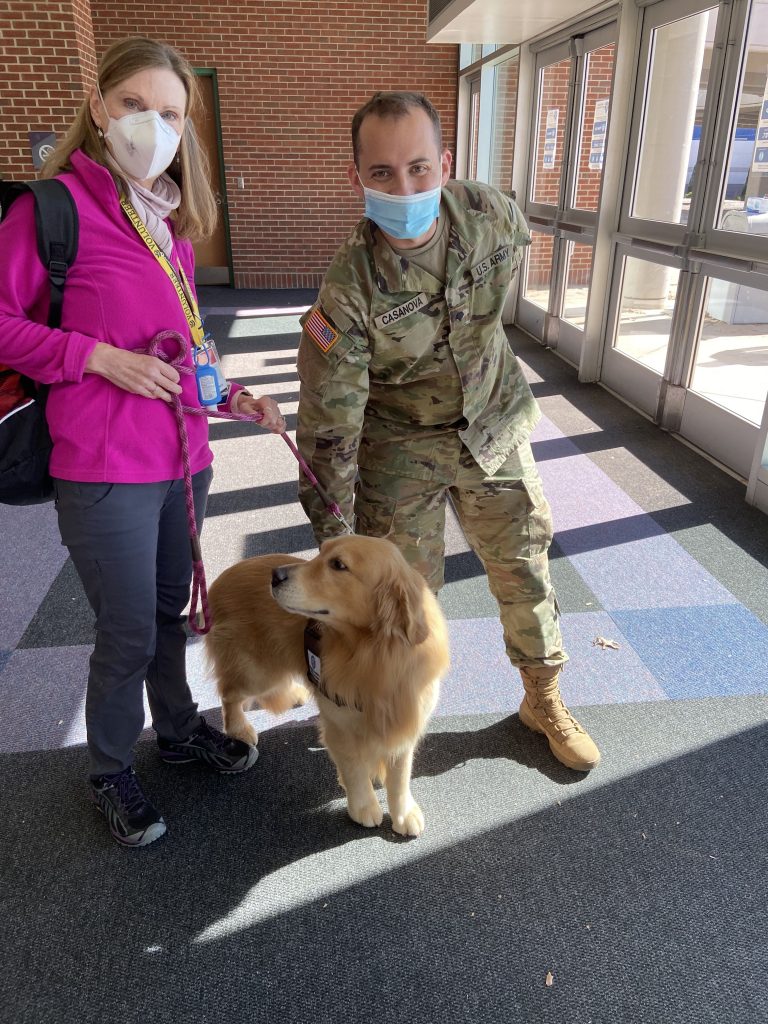
Theo greets a soldier helping direct attendees at a Covid-19 vaccination clinic. Photo courtesy of Beth Kuoni
She’s “thrilled” that Pet Partners can help support a variety of people during the pandemic, including children at Covid-19 vaccination clinics. She said that just as with reading programs, in which children read to a dog to improve literacy skills, therapy animals like Theo serve as both a motivation and a reward for getting a Covid-19 vaccine. Teams are also visiting child vaccination clinics in Montana and Texas.
“I don’t think it’s something that two years ago, anyone in our field would have considered that we would be doing, but it’s a natural extension of the work that we do in supporting overall human health and providing comfort, healing, joy bringing benefits that therapy animals provide,” she said. “I’m so honored to play a role in supporting this particular, very important element of health for everyone, and I’m grateful that we have these volunteers who are willing to help support their communities in this way.”
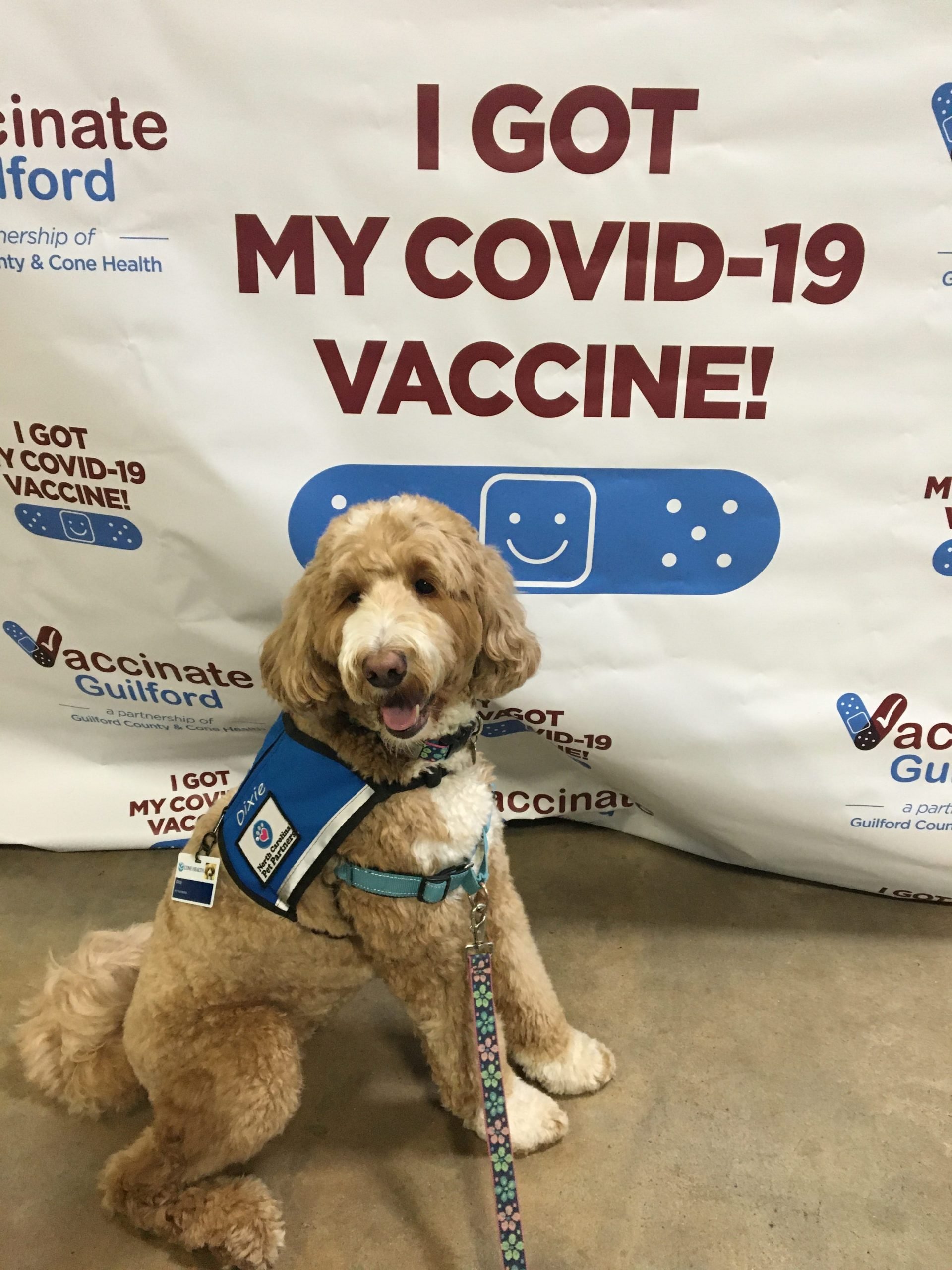
3 Comments